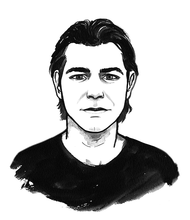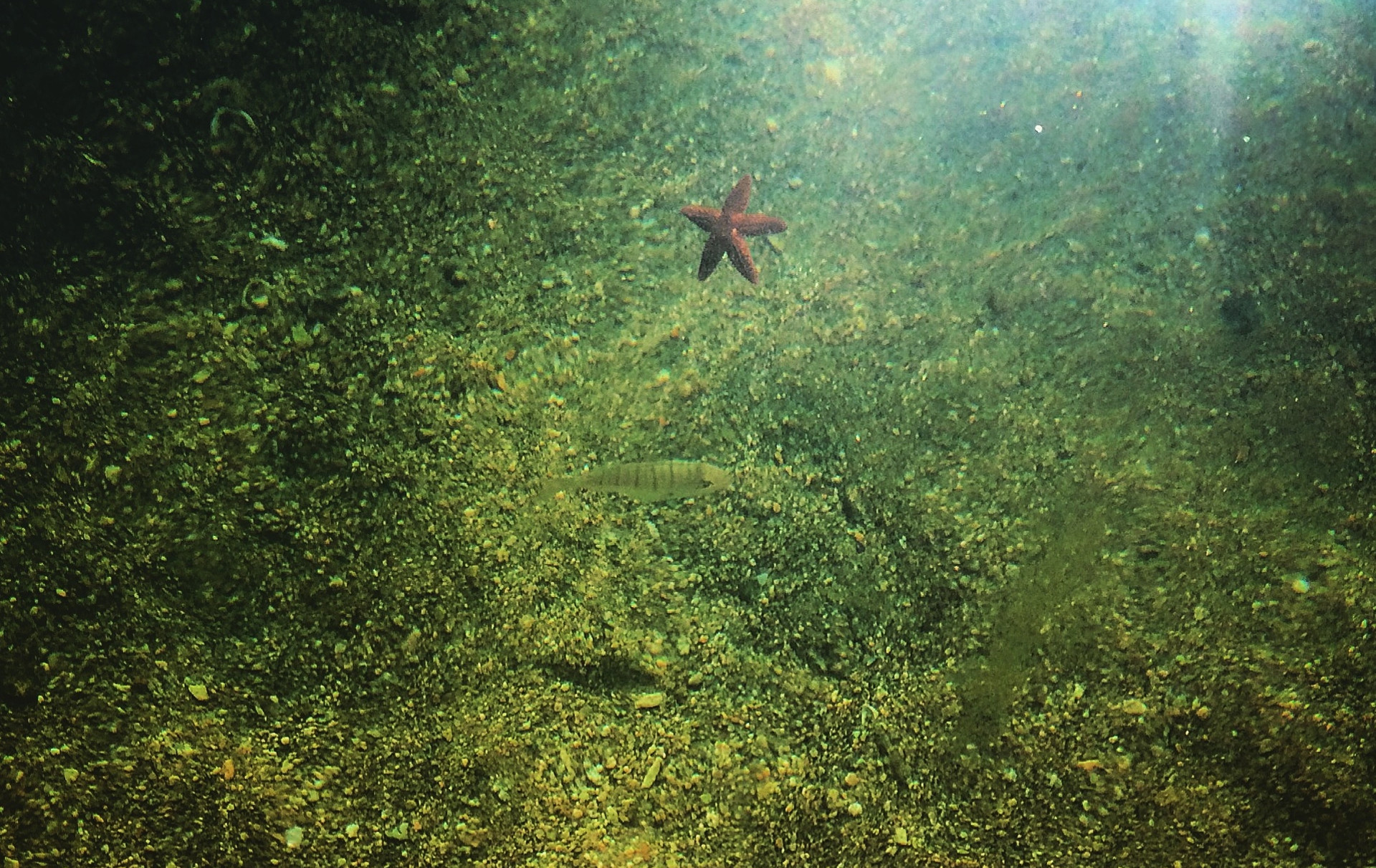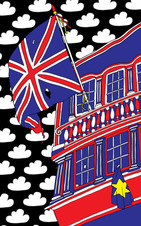Jos de Putter, our Documentary Correspondent, used to be the top editor of an acclaimed program on Dutch television called Tegenlicht (‘Backlight’). He once told me that when the European Union was the topic of an episode, or the word “Europe” appeared in the blurb, ratings dropped by 40%. So I can assume the title of this piece is going to cost me readers. Using “Europe” in a headline is to a columnist what a bad weather forecast is to the owner of an outdoor cafe: Bye-bye, visitors.
Using “Europe” in a headline is to a columnist what a bad weather forecast is to the owner of an outdoor cafe: Bye-bye, visitors.
Europe isn’t hot, we might say. Europe is never trending.
Or as professional Europe analysts would say: Europe doesn’t have a story. There’s no shared identity that makes us feel European; no symbols with which we can identify; no values set in stone which unite us as Europeans.
Americans have their Dream and the Statue of Liberty. The Chinese have the Party and its associated ideology. The Dutch have windmills and the Boys in Orange. And the British have their tea and their everlasting Queen.
But Europe?
What is Europe, really?
Countless explanations have been given for this lack of “a story.”
The EU started out as – and still is – primarily an economic union. From the outset, the political, moral, and ideological dimensions were largely overlooked (the economic perspective).
The continent is simply too vast, its competing interests too myriad, and its cultures too diverse – in terms of language, customs, peoples – to ever truly become one (the sociological perspective).
People identify more readily with the near and the familiar – their own country, region, or recent history – than with a union that seems remote and abstract (the psychological perspective).
Europe lacks identity-bolstering symbols, inspired leaders, and the pan-European media it would take to spread Europe’s story across the continent (the political-cultural perspective).
What Europe is, is not Europe
All those explanations have their merits – as well as their shortcomings. But the more I think about why Europe lacks a “story” – or put another way, why I don’t feel European in the way many Americans feel American – the more I tend to see a different explanation: Europe has no story because Europe is precisely what it is not.
Now that may sound like slightly mad banter from a professional philosopher. (As Parmenides once said, “What is...is! And what is not...is not!” – just try and argue with that.)
But let me explain.
The story of the vanishing borders
When I used to go on vacation with my mother – born and fled from what used to be Czechoslovakia – back to her homeland every summer, the drive always included at least four hours of fearful waiting at the border. Armed guards as suspicious as drug-sniffing dogs on the trail of cocaine meticulously checked all passports and vehicles trying to enter the country. A nerve-wracking four hours, I can remember, since the trunk of our car was always stuffed full with all kinds of household imports – coffee, detergent, sanitary pads – that were next to impossible to get your hands on there at the time.
Ten million square kilometers of Europe welcomes you without suspicion or border controls
Now, 20 years later, there are no longer any borders (and no shortage of coffee, detergent, or sanitary pads in Slovakian shops either). Whether you travel by plane, train, or automobile, the 10 million square kilometers of Europe (some 3.8 million square miles, about the size of the U.S.) welcomes you without border controls and without suspicion. There are no more armed checkpoints along the highways, and going through customs at the airport is a formality.
The story of Europe is the story of the vanishing borders.
The story of the vanishing worries
The same is true of just about everything that makes Europe unique. Travel to some 75% of the world, and be prepared to worry about diseases for which you must be immunized, crime you must be alert to, threats that prompt government travel advisories, tainted food that will land you in the hospital, tap water to avoid at all costs, human rights that are far from certain, and so on and so on.
Throw a dart at a map of Europe, however, and you can rest assured: it is generally safe, clean, and just. You don’t need any shots and apart from a few major cities perhaps, you need not padlock your pocketbook; you don’t have to be wary of the hotdog stand or to fish the ice cubes out of your soft drink; you need not fear the authorities. You seldom even have to change your money; your euros won’t be refused, your ATM card won’t be spit out, your credit card will not be turned down. You can, in other words, pack your bags and Let’s Go Europe.
The story of Europe is the story of the vanishing worries.
The story of the vanishing foes
The Polish-British social psychologist Henri Tajfel devoted his entire academic life to finding an answer to the question how group identity forms, be it in a sports team or a nation-state. His conclusion? The most important factor in engendering a group feeling is a common enemy. It’s no wonder, then, the U.S. has such a strong national identity: the country started as a war against a native population and has since always found new enemies to rally around, from the British crown to the Russians to Islamic radicals.
And that is something Europe hasn’t had for years: a true foe. How often do you see protesters with placards that read “Death to Europe!” or burning EU flags on the evening news? No, people are flocking to the continent, viewed as a safe haven for those who do still know enemies.
The story of Europe is the story of the vanishing foes.
Europe, the continent you hardly notice
In short, what makes Europe Europe is that which you don’t see when it’s all around you and only notice when it’s not. Peace, freedom, security, prosperity: all things that make life smoother, easier, more carefree. And that, I think, is the most important reason Europe has “no story,” and so few of us feel “European”: the more successful Europe is, the less you notice it.
The more successful Europe is, the less you notice it
Of course I realize that Europe is also high unemployment in Spain, debt in Greece, the mafia in Italy, corruption in Bulgaria, and slumbering fascism in Hungary. You can make the list as long as you need to convince yourself that my painting Europe as paradise is woefully misguided. But all that misery is visible enough.
It’s the Elysian we so take for granted that we soon forget it’s all around us. Travel truly abroad sometime. Drink from the tap in China; take the train as a single woman in Iran; leave your pocketbook unattended in Rwanda; or go as a gay couple to Russia. Then you suddenly realize with certainty, “Oh, yeah. No two ways about it: I’m European.”
On June 23, 2016, the UK made history by voting in a close referendum, but with a convincingly high turnout, for a Brexit from the EU.
The British are leaving.
I get it. All progress has a downside. All that new prosperity is not exactly evenly distributed over the continent. Bankers, as you can imagine, are very much pro-EU. And without national borders, crime also has more freedom of movement. There’s enough wrong on the continent to produce a front page every day portraying Europe as the big bad outside world. I would want out, too, if I read the UK’s Daily Express.
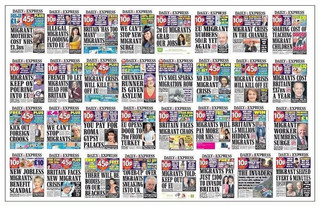
32 front pages of the Daily Express, a British tabloid.
The problem is this: Try and make a front page each and every day about what else Europe is. What would you see then?
Maybe you know the one about the two fish, as told by writer David Foster Wallace, who encounter another fish swimming the other way. The lone swimmer greets the two with a hearty, “Morning boys, how’s the water?”
The two fish look at each other in confusion. Then one leans over to the other and goes, “What the hell is water?”
Europe is that water.
— Translated from Dutch by Erica Moore and Maria Sherwood-Smith
More stories from The Correspondent:
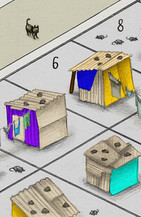 What’s deadly dull and can save the world? Hint: We can’t stand it
What do poor people need most? Food? Healthcare? Education? The answer is as surprising as it is simple. And it can be found under fluorescent lights and modular ceilings.
What’s deadly dull and can save the world? Hint: We can’t stand it
What do poor people need most? Food? Healthcare? Education? The answer is as surprising as it is simple. And it can be found under fluorescent lights and modular ceilings.
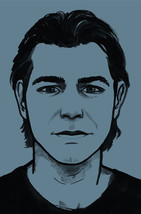 After Brussels everything’s been said (except what almost everyone thinks)
In the aftermath of the Brussels bombings, we’re left with a political Groundhog Day: the endless rehashing of empty debates. Empty, because the contradictions on which they depend do not in fact exist.
After Brussels everything’s been said (except what almost everyone thinks)
In the aftermath of the Brussels bombings, we’re left with a political Groundhog Day: the endless rehashing of empty debates. Empty, because the contradictions on which they depend do not in fact exist.
